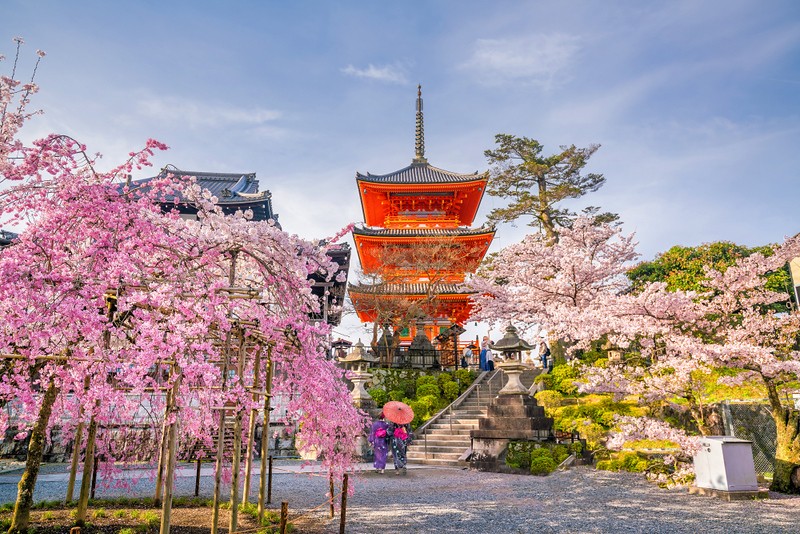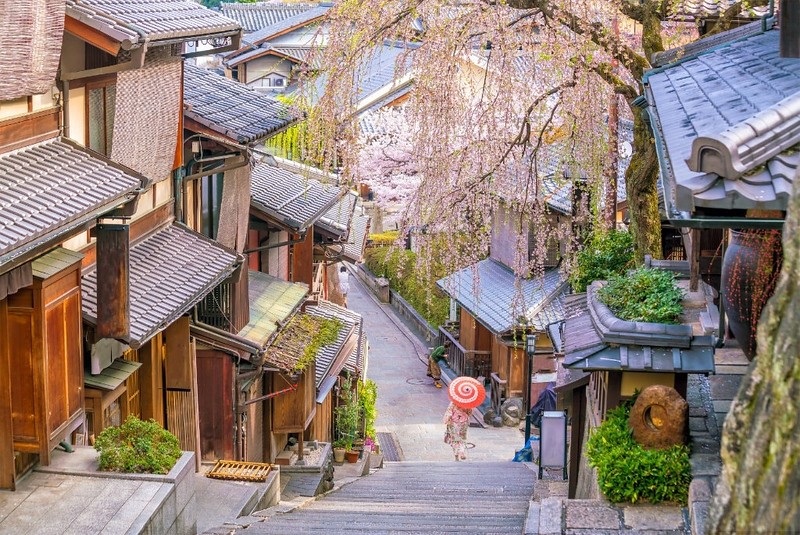Japan is a fascinating destination, and planning a trip can be exciting! Will Japan Open Up For Tourism? Yes! Japan has reopened for tourism, and SIXT.VN is here to help you plan your dream trip with ease. From airport transfers to comfortable accommodations and expertly guided tours, we provide seamless travel experiences in Vietnam. So, get ready to explore Japan’s rich culture and stunning landscapes. With SIXT.VN, your journey to Japan promises to be unforgettable.
Contents
- 1. Is Japan Open for Tourism? The Latest Updates
- 1.1 What are the Current Entry Requirements for Japan?
- 1.2 Is Japan Open for Unrestricted Travel?
- 2. Who Can Travel to Japan Now? Eligibility and Visa Requirements
- 2.1 Which Nationalities are Eligible for Visa-Free Entry?
- 2.2 What if My Nationality is Not on the Visa-Free List?
- 2.3 Are There Any Specific Requirements for Visa-Free Travelers?
- 3. What to Expect When You Arrive: Airport Procedures and Customs
- 3.1 Using the Visit Japan Web App
- 3.2 What Happens at Immigration?
- 3.3 Navigating Customs and Baggage Claim
- 4. Health and Safety Guidelines: What You Need to Know
- 4.1 Do I Need to Wear a Mask in Japan?
- 4.2 General Health Precautions
- 4.3 Staying Safe in Japan
- 5. Planning Your Trip: Essential Tips and Recommendations
- 5.1 Best Time to Visit Japan
- 5.2 Must-See Destinations in Japan
- 5.3 Accommodation Options in Japan
- 6. Navigating Japan: Transportation Tips and Tricks
- 6.1 Understanding the Japan Rail Pass
- 6.2 Using Public Transportation in Cities
- 6.3 Renting a Car in Japan
- 7. Cultural Experiences: Immersing Yourself in Japanese Traditions
- 7.1 Visiting Temples and Shrines
- 7.2 Participating in a Tea Ceremony
- 7.3 Trying Traditional Japanese Cuisine
- 8. Essential Japanese Phrases: Communicating with Locals
- 8.1 Basic Greetings and Expressions
- 8.2 Useful Phrases for Travelers
- 9. How SIXT.VN Can Enhance Your Trip to Japan
- 9.1 Airport Transfers
- 9.2 Hotel Booking Assistance
- 9.3 Guided Tours and Activities
- 10. Frequently Asked Questions (FAQ) About Traveling to Japan
- 10.1 Do I need a visa to travel to Japan?
- 10.2 Are there any COVID-19 related restrictions for entering Japan?
- 10.3 Is it safe to travel to Japan?
- 10.4 What is the best time to visit Japan?
- 10.5 What are some must-see destinations in Japan?
- 10.6 How can I get around Japan?
- 10.7 What are some essential Japanese phrases to learn?
- 10.8 What is the currency in Japan?
- 10.9 Can I use credit cards in Japan?
- 10.10 How can SIXT.VN help me plan my trip to Japan?
- Conclusion: Your Dream Trip to Japan Awaits
1. Is Japan Open for Tourism? The Latest Updates
Yes, Japan is officially open for tourism! Independent travel is now possible for citizens of many countries. This means you can finally explore the vibrant cities, serene temples, and breathtaking natural beauty that Japan has to offer.
Japan’s reopening has been highly anticipated by travelers worldwide. After a period of strict border controls, the country has gradually eased its restrictions, allowing tourists to once again experience its unique culture and attractions. According to the Japan National Tourism Organization (JNTO), the reopening has been implemented in phases, with the latest phase removing most of the previous barriers to entry. As of now, travelers from numerous countries can enter Japan without needing to apply for a visa in advance, making travel planning much simpler and more accessible.
 A bustling street in Tokyo, Japan, with neon lights and crowds of people
A bustling street in Tokyo, Japan, with neon lights and crowds of people
1.1 What are the Current Entry Requirements for Japan?
The entry requirements for Japan have been significantly relaxed. As of now, there are no COVID-19 related restrictions, meaning you do not need to provide proof of vaccination or a negative COVID-19 test to enter the country.
-
Visa-Free Travel: Citizens of 68 countries can enter Japan without a visa for tourism purposes, staying up to 90 days.
-
No COVID-19 Protocols: There are no requirements for vaccination or negative COVID-19 tests.
1.2 Is Japan Open for Unrestricted Travel?
Yes, Japan is now open for unrestricted travel. The previous restrictions on guided tours and group travel have been lifted, allowing you to explore the country independently.
This means you can create your own itinerary, choose your accommodations, and travel at your own pace. Whether you want to immerse yourself in the bustling city of Tokyo, explore the historic temples of Kyoto, or hike the scenic trails of Hokkaido, the possibilities are endless.
2. Who Can Travel to Japan Now? Eligibility and Visa Requirements
Many nationalities can now enjoy visa-free travel to Japan, making it easier than ever to plan your trip. However, it’s essential to check the specific requirements based on your citizenship.
2.1 Which Nationalities are Eligible for Visa-Free Entry?
Citizens of 68 countries are currently eligible for visa-free travel to Japan for tourism purposes, with a maximum stay of 90 days.
Here is a list of some of the countries whose citizens are eligible for visa-free travel to Japan (check the Japan Ministry of Foreign Affairs website for the most up-to-date list):
| Region | Countries |
|---|---|
| Europe | Andorra, Austria, Belgium, Bulgaria, Croatia, Cyprus, Czech Republic, Denmark, Estonia, Finland, France, Germany, Greece, Hungary, Iceland, Ireland, Italy, Latvia, Liechtenstein, Lithuania, Luxembourg, Malta, Monaco, Netherlands, Norway, Poland, Portugal, Romania, San Marino, Slovakia, Slovenia, Spain, Sweden, Switzerland, United Kingdom |
| North America | Canada, United States |
| Asia | Hong Kong, Indonesia, Macao, Malaysia, Singapore, South Korea, Taiwan, Thailand |
| Oceania | Australia, New Zealand |
| Latin America | Argentina, Bahamas, Barbados, Chile, Colombia, Costa Rica, Dominican Republic, El Salvador, Guatemala, Honduras, Mexico, Nicaragua, Panama, Paraguay, Peru, Suriname, Uruguay |
| Middle East | Israel, Turkey |
If your country is on this list, you can simply pack your bags and head to Japan without the need for a visa.
2.2 What if My Nationality is Not on the Visa-Free List?
If your nationality is not on the visa-free list, you will need to apply for a visa to enter Japan. The type of visa you need will depend on the purpose of your visit, such as tourism, business, or study.
To apply for a visa, you will need to contact the Japanese embassy or consulate in your country. They will provide you with the necessary application forms and information on the required documents. Be sure to apply well in advance of your planned travel dates, as the visa application process can take some time.
2.3 Are There Any Specific Requirements for Visa-Free Travelers?
Even if you are eligible for visa-free travel, there are still some requirements you need to meet. You must have a valid passport with at least six months of validity remaining, and you must be able to demonstrate that you are a genuine tourist.
You may also be asked to provide evidence of your travel itinerary, such as hotel reservations and flight tickets. It’s a good idea to have these documents readily available when you arrive in Japan.
3. What to Expect When You Arrive: Airport Procedures and Customs
Arriving in a new country can be a bit overwhelming, but Japan has streamlined its airport procedures to make your entry as smooth as possible. Here’s what you can expect upon arrival.
3.1 Using the Visit Japan Web App
The Visit Japan Web app is a convenient tool that allows you to upload your immigration and customs details in advance, saving you time at the airport.
This app allows you to complete the necessary arrival procedures online before your trip. You can submit your immigration and customs declarations, as well as any required health questionnaires. By using the app, you can bypass the paper forms and head straight to the automated kiosks upon arrival. This can significantly reduce your waiting time and make the entry process more efficient.
3.2 What Happens at Immigration?
Upon arrival, you will need to go through immigration. Have your passport and any required documents ready for inspection.
The immigration officer will verify your identity and ensure that you meet the entry requirements. They may ask you questions about the purpose of your visit and how long you plan to stay in Japan. Be sure to answer truthfully and politely. Once your passport is stamped, you can proceed to baggage claim.
3.3 Navigating Customs and Baggage Claim
After immigration, you will proceed to baggage claim to collect your luggage. Once you have your bags, you will need to go through customs.
You will need to fill out a customs declaration form, either online through the Visit Japan Web app or on paper upon arrival. Declare any items that you are bringing into the country that may be subject to customs duties or restrictions. If you are unsure whether an item needs to be declared, it’s best to err on the side of caution and declare it.
4. Health and Safety Guidelines: What You Need to Know
While Japan has lifted its COVID-19 related restrictions, it’s still important to be aware of general health and safety guidelines to ensure a smooth and enjoyable trip.
4.1 Do I Need to Wear a Mask in Japan?
As of March 13, 2023, the indoor masking recommendation has been dropped in Japan. However, some shops and restaurants may still ask that you wear a mask.
Masks are not mandatory in most public spaces. However, it’s always a good idea to carry a mask with you and be prepared to wear it if requested. Additionally, if you are feeling unwell or have any respiratory symptoms, it’s considerate to wear a mask to protect others.
4.2 General Health Precautions
While there are no specific COVID-19 related requirements, it’s always wise to practice good hygiene and be mindful of your health.
Wash your hands frequently with soap and water, especially after being in public places. Carry hand sanitizer with you for times when soap and water are not available. If you are feeling unwell, avoid contact with others and seek medical attention if necessary.
4.3 Staying Safe in Japan
Japan is generally a very safe country, but it’s always important to be aware of your surroundings and take precautions to protect yourself from crime.
Be mindful of your belongings, especially in crowded areas. Avoid walking alone in dark or unfamiliar places. If you need assistance, don’t hesitate to ask for help from a police officer or other authority figure. Japan has a very low crime rate, but it’s always better to be safe than sorry.
5. Planning Your Trip: Essential Tips and Recommendations
Planning a trip to Japan can be exciting, but it can also be a bit overwhelming. Here are some essential tips and recommendations to help you plan the perfect trip.
5.1 Best Time to Visit Japan
The best time to visit Japan depends on your interests. Spring (March-May) and autumn (September-November) are popular for their pleasant weather and beautiful scenery.
Spring is cherry blossom season, when the country is awash in pink and white blossoms. Autumn is a time of colorful foliage, with vibrant reds, oranges, and yellows painting the landscapes. Both seasons offer mild temperatures and comfortable conditions for sightseeing.
5.2 Must-See Destinations in Japan
Japan offers a wide range of attractions, from bustling cities to serene temples and stunning natural landscapes. Here are some must-see destinations to include in your itinerary.
-
Tokyo: The vibrant capital city, known for its modern architecture, trendy neighborhoods, and delicious cuisine.
-
Kyoto: The ancient capital, home to numerous temples, shrines, and traditional gardens.
-
Osaka: A lively city with a thriving food scene and a vibrant nightlife.
-
Hiroshima: A city with a poignant history, known for its Peace Memorial Park and Museum.
-
Hokkaido: A northern island with stunning natural landscapes, including mountains, lakes, and forests.
5.3 Accommodation Options in Japan
Japan offers a wide range of accommodation options, from traditional ryokans (Japanese inns) to modern hotels and budget-friendly hostels.
Ryokans offer a unique cultural experience, with tatami mats, futon beds, and onsen (hot springs). Hotels are available in a variety of styles and price ranges, from luxury options to budget-friendly chains. Hostels are a good option for budget travelers, offering dormitory-style rooms and common areas for socializing.
6. Navigating Japan: Transportation Tips and Tricks
Getting around Japan is easy and efficient, thanks to its well-developed transportation network. Here are some tips and tricks to help you navigate the country.
6.1 Understanding the Japan Rail Pass
The Japan Rail Pass is a cost-effective option for tourists who plan to travel extensively by train.
This pass allows you unlimited travel on most Japan Railways (JR) trains for a set period of time, such as one, two, or three weeks. It’s a great option if you plan to visit multiple cities or regions during your trip. However, it’s important to note that the Japan Rail Pass is only available to foreign tourists and must be purchased before you arrive in Japan.
6.2 Using Public Transportation in Cities
Japan’s cities have excellent public transportation systems, including trains, subways, and buses.
Trains and subways are the most efficient way to get around, with frequent service and extensive networks. Buses are also available, but they can be slower and more crowded. When using public transportation, it’s a good idea to purchase a rechargeable travel card, such as a Suica or Pasmo card. These cards can be used on most trains, subways, and buses, and they make it easy to pay for your fare without having to buy a ticket each time.
6.3 Renting a Car in Japan
Renting a car can be a good option if you plan to explore rural areas or remote destinations.
However, it’s important to note that driving in Japan can be challenging, especially in cities. Roads can be narrow and traffic can be heavy. Additionally, you will need an international driving permit to rent a car in Japan. If you do decide to rent a car, be sure to familiarize yourself with the local traffic laws and customs.
7. Cultural Experiences: Immersing Yourself in Japanese Traditions
One of the best things about visiting Japan is the opportunity to immerse yourself in its rich culture and traditions. Here are some cultural experiences to include in your itinerary.
7.1 Visiting Temples and Shrines
Japan is home to numerous temples and shrines, which offer a glimpse into the country’s religious and spiritual heritage.
Temples are Buddhist places of worship, while shrines are Shinto places of worship. Both are important cultural sites and offer a peaceful and serene atmosphere. When visiting temples and shrines, it’s important to dress respectfully and follow the local customs.
7.2 Participating in a Tea Ceremony
The Japanese tea ceremony, or chanoyu, is a traditional ritual that involves the preparation and serving of matcha (green tea).
This is a highly stylized and meditative practice that is meant to promote harmony, respect, purity, and tranquility. Participating in a tea ceremony is a unique and memorable way to experience Japanese culture.
7.3 Trying Traditional Japanese Cuisine
Japanese cuisine is renowned for its fresh ingredients, delicate flavors, and beautiful presentation.
Be sure to try some of the local specialties, such as sushi, ramen, tempura, and okonomiyaki. You can also visit a traditional izakaya (Japanese pub) to sample a variety of small dishes and local sake.
8. Essential Japanese Phrases: Communicating with Locals
While many Japanese people speak some English, learning a few basic Japanese phrases can go a long way in enhancing your travel experience.
8.1 Basic Greetings and Expressions
Here are some essential Japanese phrases to get you started:
- Hello: Konnichiwa (こんにちは)
- Goodbye: Sayonara (さようなら)
- Thank you: Arigato (ありがとう)
- Please: Onegaishimasu (お願いします)
- Excuse me: Sumimasen (すみません)
- Yes: Hai (はい)
- No: Iie (いいえ)
8.2 Useful Phrases for Travelers
Here are some useful phrases for travelers:
- Where is the…? …wa doko desu ka? (…はどこですか?)
- How much does it cost? Ikura desu ka? (いくらですか?)
- I don’t understand: Wakarimasen (わかりません)
- Do you speak English? Eigo o hanasemasu ka? (英語を話せますか?)
- Help! Tasukete! (助けて!)
Learning these basic phrases will not only make your travels easier but will also show respect for the local culture.
9. How SIXT.VN Can Enhance Your Trip to Japan
Planning a trip to a foreign country can be stressful. SIXT.VN offers a range of services to make your trip to Japan seamless and enjoyable, focusing on convenience and reliability.
9.1 Airport Transfers
SIXT.VN can arrange airport transfers to ensure a smooth and hassle-free arrival and departure.
Our professional drivers will meet you at the airport and take you directly to your hotel or other destination. This is a great option if you are arriving late at night or are unfamiliar with the local transportation system.
9.2 Hotel Booking Assistance
SIXT.VN can help you find the perfect accommodation to suit your needs and budget.
We work with a wide range of hotels, from luxury resorts to budget-friendly options. Whether you are looking for a traditional ryokan or a modern hotel, we can help you find the perfect place to stay.
9.3 Guided Tours and Activities
SIXT.VN offers a variety of guided tours and activities to help you explore Japan’s top attractions.
Our experienced guides will take you to the must-see sights and provide you with valuable insights into the local culture and history. Whether you want to visit temples and shrines, explore vibrant cities, or hike scenic trails, we have a tour that’s perfect for you.
 A group of tourists enjoying a guided tour of a traditional garden in Kyoto, Japan
A group of tourists enjoying a guided tour of a traditional garden in Kyoto, Japan
10. Frequently Asked Questions (FAQ) About Traveling to Japan
Here are some frequently asked questions about traveling to Japan:
10.1 Do I need a visa to travel to Japan?
Citizens of 68 countries can enter Japan without a visa for tourism purposes, staying up to 90 days. Check the Japan Ministry of Foreign Affairs website for the most up-to-date list.
10.2 Are there any COVID-19 related restrictions for entering Japan?
No, there are currently no COVID-19 related restrictions for entering Japan. You do not need to provide proof of vaccination or a negative COVID-19 test.
10.3 Is it safe to travel to Japan?
Japan is generally a very safe country, but it’s always important to be aware of your surroundings and take precautions to protect yourself from crime.
10.4 What is the best time to visit Japan?
Spring (March-May) and autumn (September-November) are popular for their pleasant weather and beautiful scenery.
10.5 What are some must-see destinations in Japan?
Tokyo, Kyoto, Osaka, Hiroshima, and Hokkaido are some of the most popular destinations.
10.6 How can I get around Japan?
Japan has an excellent transportation network, including trains, subways, and buses. The Japan Rail Pass is a cost-effective option for tourists who plan to travel extensively by train.
10.7 What are some essential Japanese phrases to learn?
Hello (Konnichiwa), Goodbye (Sayonara), Thank you (Arigato), Please (Onegaishimasu), and Excuse me (Sumimasen) are some essential phrases to learn.
10.8 What is the currency in Japan?
The currency in Japan is the Japanese Yen (JPY).
10.9 Can I use credit cards in Japan?
Credit cards are widely accepted in major cities and tourist areas, but it’s a good idea to carry some cash with you, especially when traveling to rural areas.
10.10 How can SIXT.VN help me plan my trip to Japan?
SIXT.VN offers a range of services, including airport transfers, hotel booking assistance, and guided tours and activities, to make your trip to Japan seamless and enjoyable.
Conclusion: Your Dream Trip to Japan Awaits
Japan is waiting for you! With the country now open for tourism and SIXT.VN ready to assist you every step of the way, there’s never been a better time to plan your dream trip.
From arranging airport transfers to booking comfortable accommodations and providing expertly guided tours, SIXT.VN offers a range of services to make your travel experience seamless and unforgettable. So, pack your bags, brush up on your Japanese phrases, and get ready to explore the vibrant cities, serene temples, and breathtaking natural landscapes of Japan.
Don’t let the challenges of planning a trip hold you back. Let SIXT.VN take care of the details, so you can focus on creating memories that will last a lifetime. Contact us today to start planning your dream trip to Japan!
Address: 260 Cau Giay, Hanoi, Vietnam
Hotline/Whatsapp: +84 986 244 358
Website: SIXT.VN





